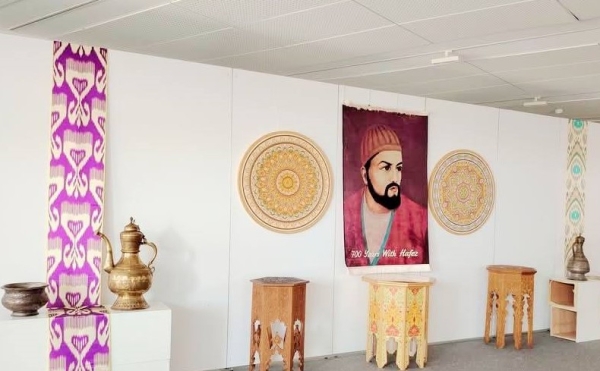
On June 11, 2025, UNESCO, in collaboration with the Republic of Tajikistan, hosted an exhibition and international scientific conference at UNESCO Headquarters in Paris to celebrate the 700th anniversary of Hafez Shirazi.
The Tajik MFA information department says the event brought together high-level representatives from UNESCO, various countries, and scholars to explore Hafez’s literary, philosophical and cultural legacy.
The Ministry of Culture says Tajik scientists have delivered reports at the conference.
Scholars and researchers from around the world will gather at a conference to pay tribute to the life and work of the renowned poet Hafiz. The event will feature an exhibition corner dedicated to Tajikistan, showcasing Hafez's books along with handicrafts from the country.
As part of the conference, a special "Shashmaqom Evening" will be held, featuring performances by the state ensemble "Shashmaqom" named after Fazliddin Shahobov, conducted by Furqat Saidzoda, alongside the "Gulrez" dance ensemble.
The festival will also host a performance with the Paris Eastern Orchestra, featuring Tajik singers Sitora Karomatullo, Shohrukh Yunusov, and Firdavs Hoshimov.
The Ministry of Culture shared images of the festival preparations on its official Facebook page, including photos of the country's Minister of Culture, Matlubahhon Sattoriyon.
The "700 Years with Hafiz" festival will continue at UNESCO headquarters in Paris until June 14.
Khajeh Shams-od-Dīn Moḥammad Ḥafeẓ-e Shirazi, known by his pen name Hafez also known by his nickname Lisan al-Ghaib ('the tongue of the unseen'), was a Persian lyric poet whose collected works are regarded by many Iranians as one of the highest pinnacles of Persian literature. His works are often found in the homes of Persian speakers, who learn his poems by heart and use them as everyday proverbs and sayings. His life and poems have become the subjects of much analysis, commentary, and interpretation, influencing post-14th century Persian writing more than any other Persian author.
Hafez is best known for his Divan, a collection of his surviving poems probably compiled after his death. Hafez primarily wrote in the literary genre of lyric poetry or ghazals, which is the ideal style for expressing the ecstasy of divine inspiration in the mystical form of love poems. He was a Sufi.





